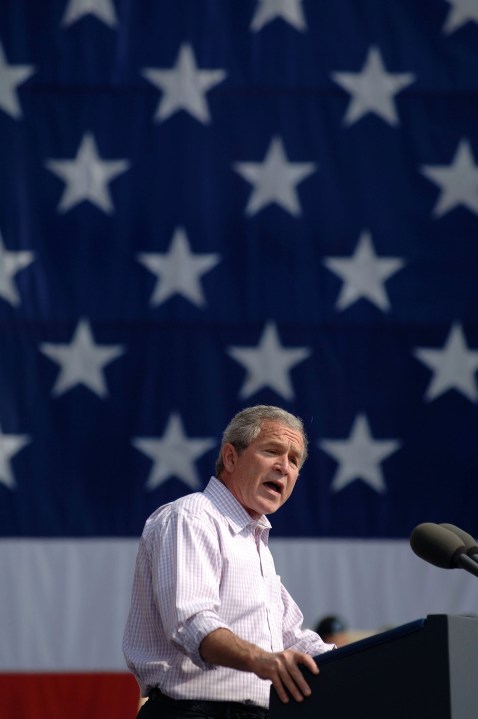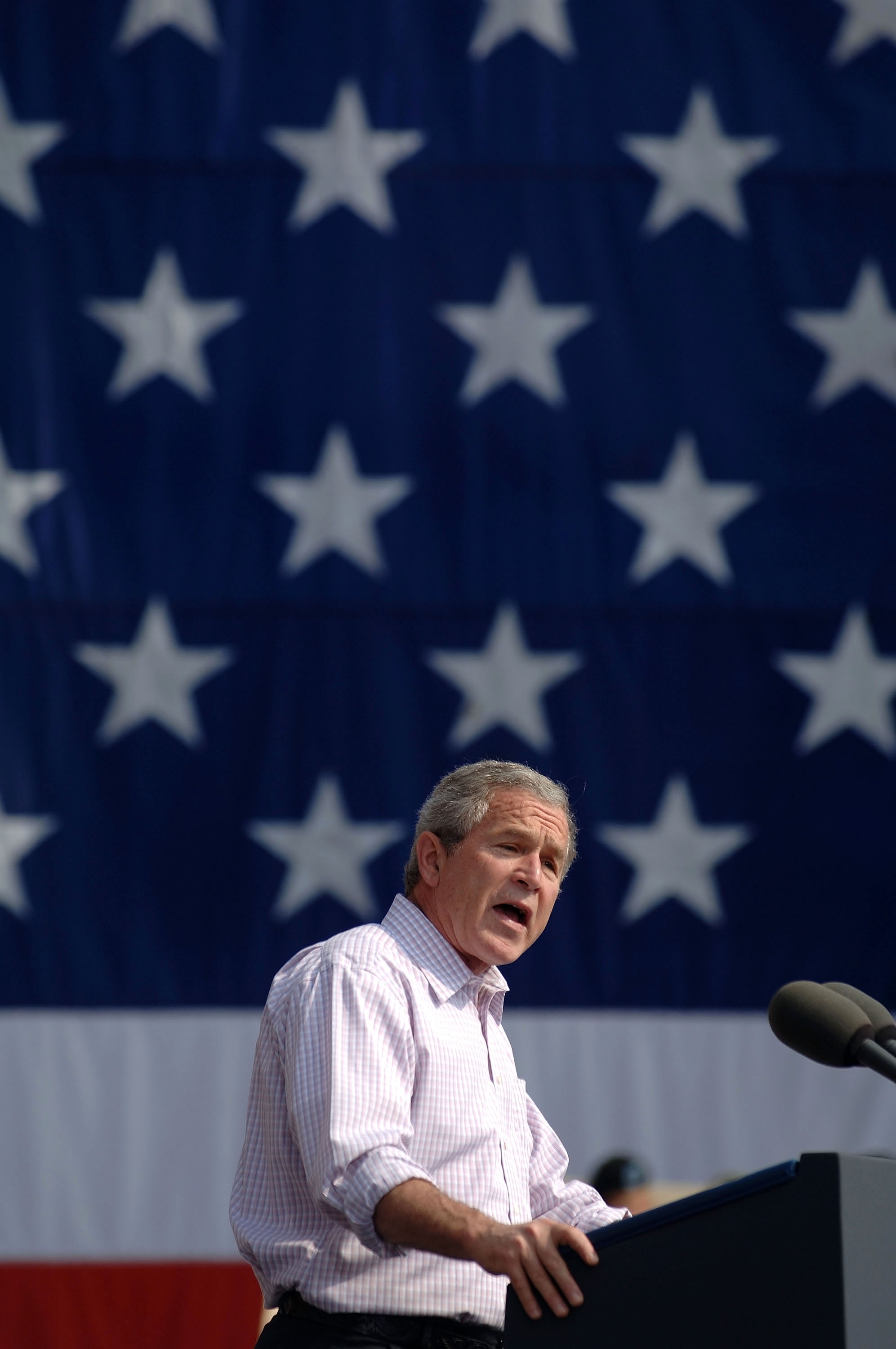 The late David Halberstam—author of The Best and the Brightest—has a posthumously published essay in Vanity Fair on Bush’s misuse of history. He charges that the Bush administration lives in
The late David Halberstam—author of The Best and the Brightest—has a posthumously published essay in Vanity Fair on Bush’s misuse of history. He charges that the Bush administration lives in
“a world where other nations admire America or damned well ought to, and America is always right, always on the side of good, in a world of evil, and it’s just a matter of getting the rest of the world to understand this.”
Ironically, I don’t think the Bush administration would actually dissent this much from that analysis. Just consider this op-ed in today’s Washington Post by Michael Gerson, the man responsible for Bush’s most memorable speeches but who has now left the White House, on the meaning of the 4th of July.
Reading it you can see just how much of a mind-meld there is between Gerson and his former boss, he hits all the Bush notes. Here’s the key passage:
“It is typical of America that our great national day is not the celebration of a battle — or, as in the case of France, the celebration of a riot. It is the celebration of a political act, embedded in a philosophic argument: that the rights of man are universal because they are rooted in the image of God. That argument remains controversial. Some view all claims of universal truth with skepticism. Some believe such claims by America amount to hubris.
Which is why some of us love this holiday so much. It is the day when cynicism is silent. It is the day when Americans recall that “all men are created equal” somehow applies to the Mexican migrant and the Iraqi shopkeeper and the inner-city teenager. And it is the day we honor those who take this fact seriously. Those in our military who fight for the liberty of strangers are noble. Those dissidents who risk much in Burma, Zimbabwe, North Korea and China are heroic. Those who work against poverty and injustice in America are patriots — because patriotism does not require us to live in denial, only to live in hope.”
My beef with the Bush administration’s foreign policy is not its aims, the spread of democracy, the maintenance of American primacy and the like, but the assumption that because these goals are noble—right, in some moral sense—they’ll be easily accomplished. America, and the world, is paying heavily for that delusion.







Comments